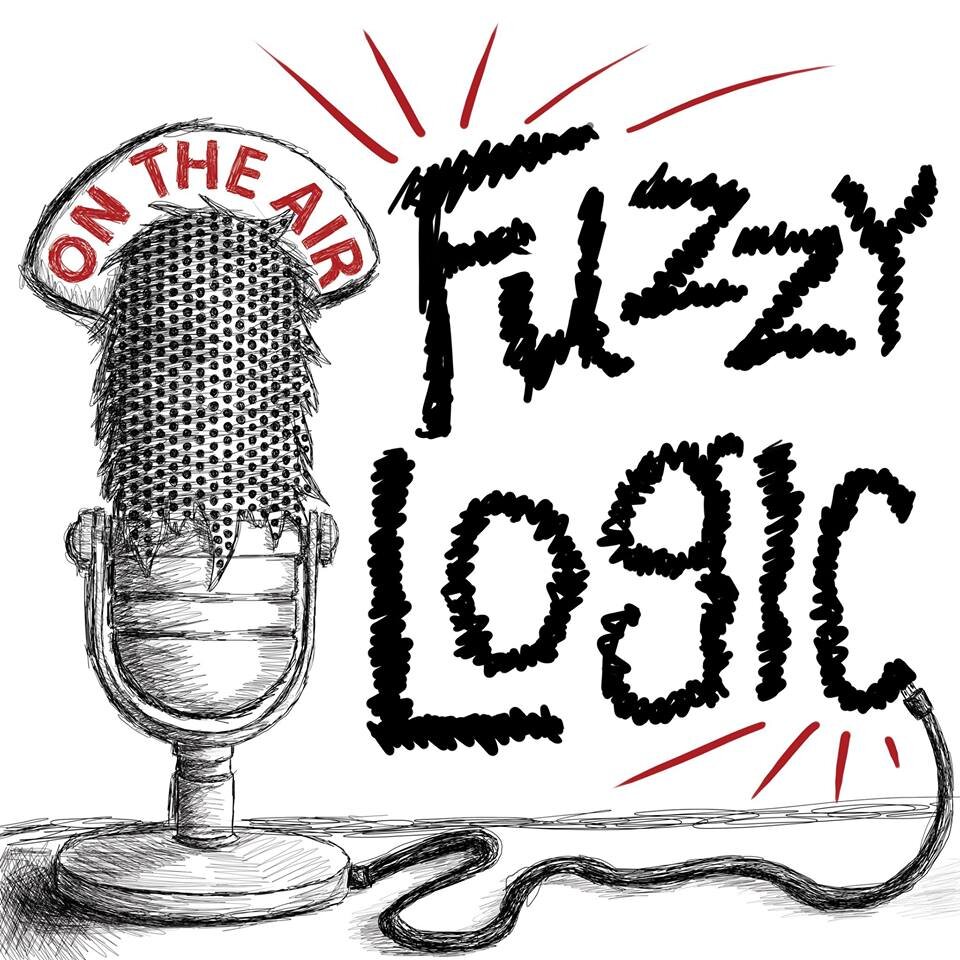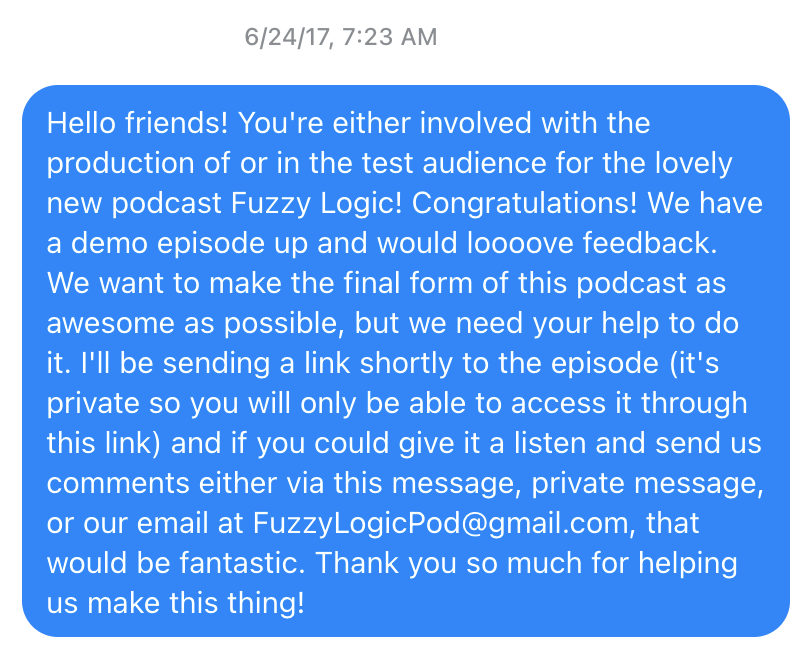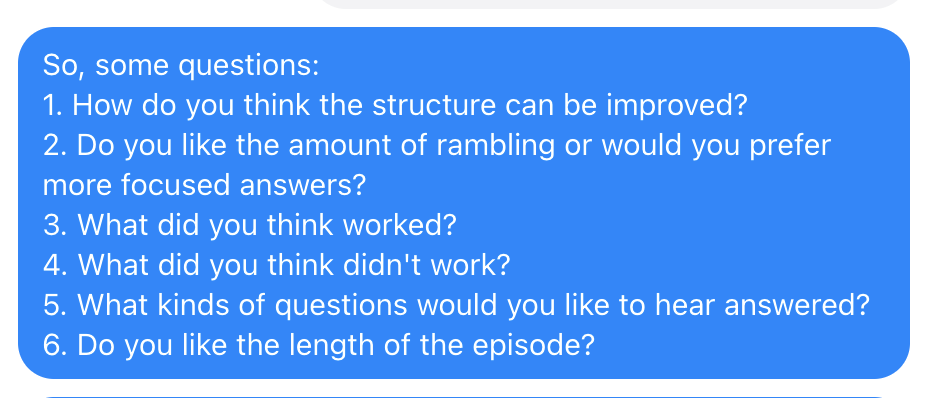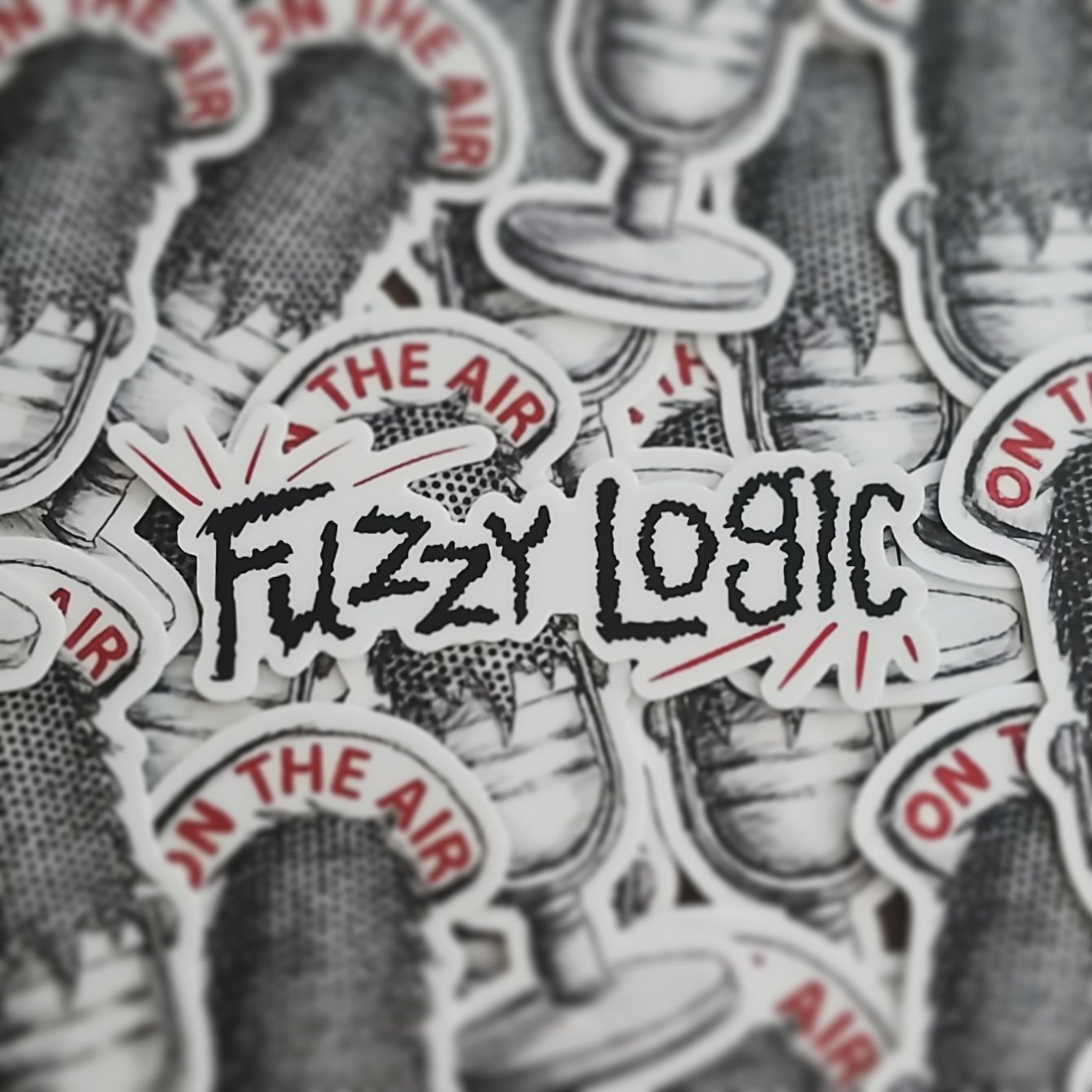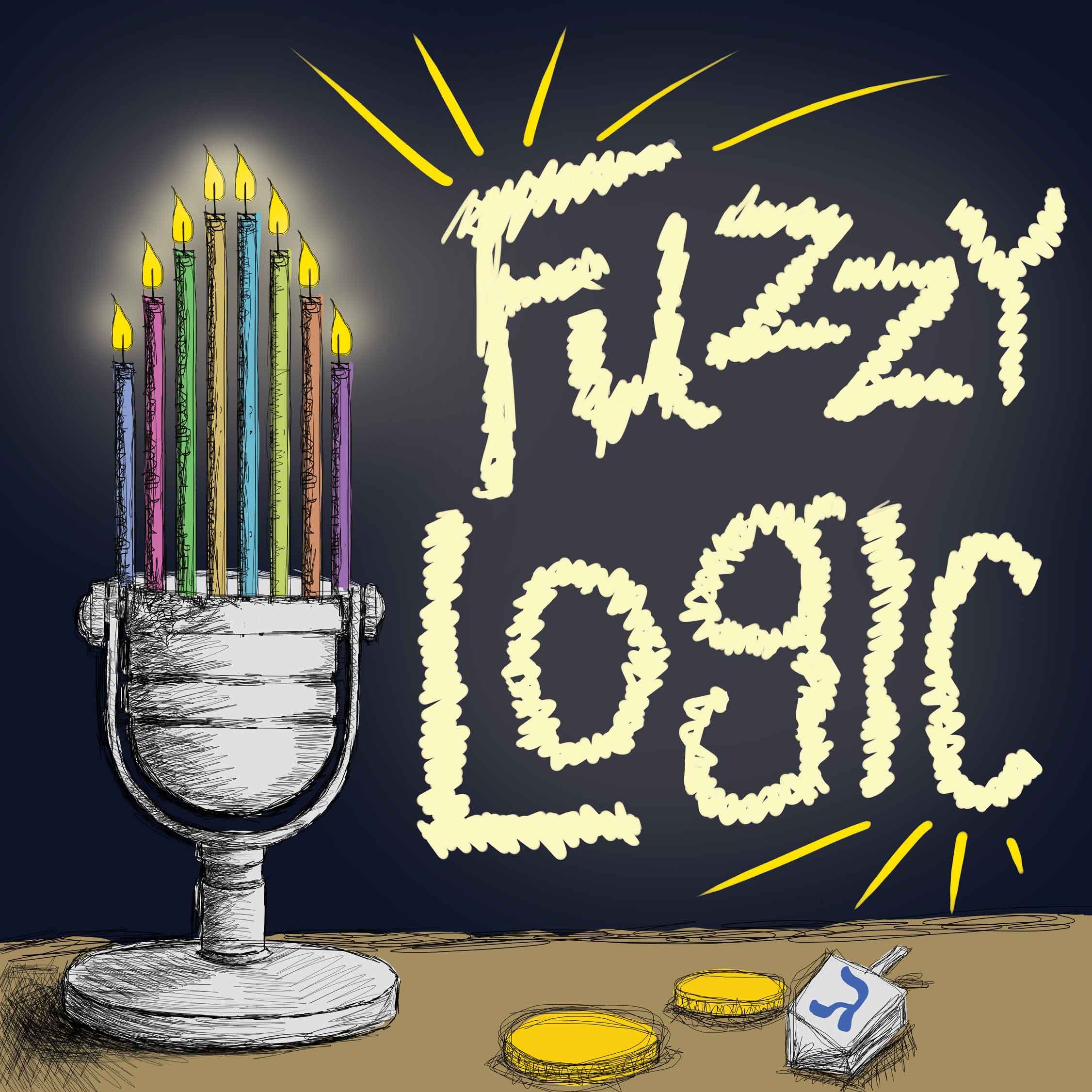The Concept
For the first 20-odd years of my life, I was a perfectionist, and I prided myself on being good at everything I tried. That, however, is a terribly limiting way to move through the world.
So, I did what any good millennial would do about it: I made a podcast.
The premise was simple– Each week, I and two other hosts would bring a question to the table and try to answer each question using only knowledge we already had. Then, once we’d all made sufficient fools of ourselves, we’d do some research on the actual answers and come back with corrections.
It didn’t start out that way, though.
The Pilot
Fuzzy Logic’s pilot (released as our farewell episode, S0E0: The Lost Episode) tells a much less focused story.
I wouldn’t learn about UX Design for several years, but already I was aware of how crucial testing and iteration was to any good creative project. So, I decided to workshop the pilot.
Months before the first episode was released, I assembled a team of 23 test-listeners to help me refine the show’s tone, structure, editing, and more.
The initial concept had us bringing a pool of 5 questions to the table, trying to answer them, and then giving corrections for last week’s episode.
The testers all gave the same feedback: we want the corrections now!
So, we implemented the changes and went through another round of testing.
Our pilot audience liked the new format much better, and were able to focus on giving us other notes – helping us perfect the balance between serious and silly, pushing us to trim the question pool down to 3 instead of 5, and implementing the show’s 48-minute hard limit, helping us avoid the podcast creep that pervades the medium.
This was the first major project I’d worked on, and the first one I’d workshopped. The feedback was scary at first, but I was encouraged by the fact that – despite its imperfections – people seemed to like the show’s core concept. So I kept going.
The Results
Fuzzy Logic launched its first 3 episodes in December of 2017, and ended in April of 2020 with 42 episodes, 15 minisodes, and an eight-day-long Hanukkah event. I represented the show at three different podcast conventions in two different cities, taught myself everything there was to know about podcast editing in REAPER, and sorted through hundreds of questions submitted to the show. I launched a Patreon for the show that became self-sustaining the same month it was launched, and peaked at over $600/month. To date, it has accrued more than 18,000 downloads, and we still have about 200 monthly downloads despite the fact that we haven’t released a new episode in years.
The numbers are impressive, but the reaction from our listeners was what really hit home for me.
Not only did we receive messages from folks telling us how much they enjoyed the show, but we received messages from people who viewed us and our show as role models. A physics teacher even used an excerpt from our show in her classroom as an example to encourage her students to toss out hypotheses without fear of failure!
I created this show because I thought it might help me become more comfortable with failing and learning from that failure, but what I didn’t anticipate was that it might act as a catalyst for others to do the same.
The Takeaway
Fuzzy Logic was built out of a desire to keep my perfectionism in check, but it did so much more.
Through the duration of its run, the show gave me an excuse to follow my curiosity and exercise both my creative and critical thinking skills. If my brain sounded like a podcast, it would sound like Fuzzy Logic.
It was also invaluable for my long-term project skills. I learned how to manage an ongoing project, how to distill it into its best parts, and how to make sure it was sustainable for the people involved.
Most importantly, Fuzzy Logic did what it was meant to do: Turned my attitude towards failure into one of curiosity rather than one of crippling fear.
Because I looked at my perfectionism and decided to publicly challenge it week after week, I’m a better designer, a better person, and a better collaborator. For that, I will be forever grateful.
The Bonus Content
Limited edition Fuzzy Logic stickers, given out only at Podcon 2
My top 7 favorite Fuzzy Logic questions, in no particular order:
1. “Do dolphins have a concept of God?”
2. “How much water would it take to extinguish the sun?”
3. “How tall would a building have to be before the rotation of the Earth snapped it in half?”
4. “How fast would you have to stir room-temperature water for it to boil?”
5. “Where do the bees go when it rains?”
6. “If you suddenly grew a second sentient head, would it have to file separately for taxes?”
7. “What is the correct English spelling of (C)han(n)uk(k)a(h)?”


